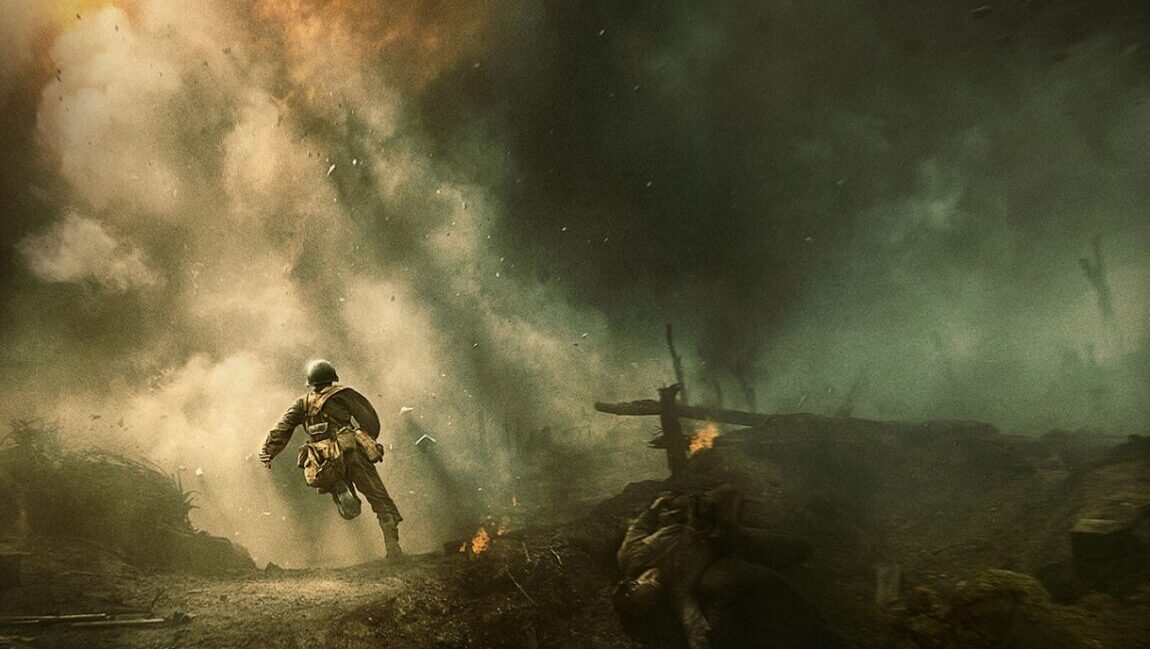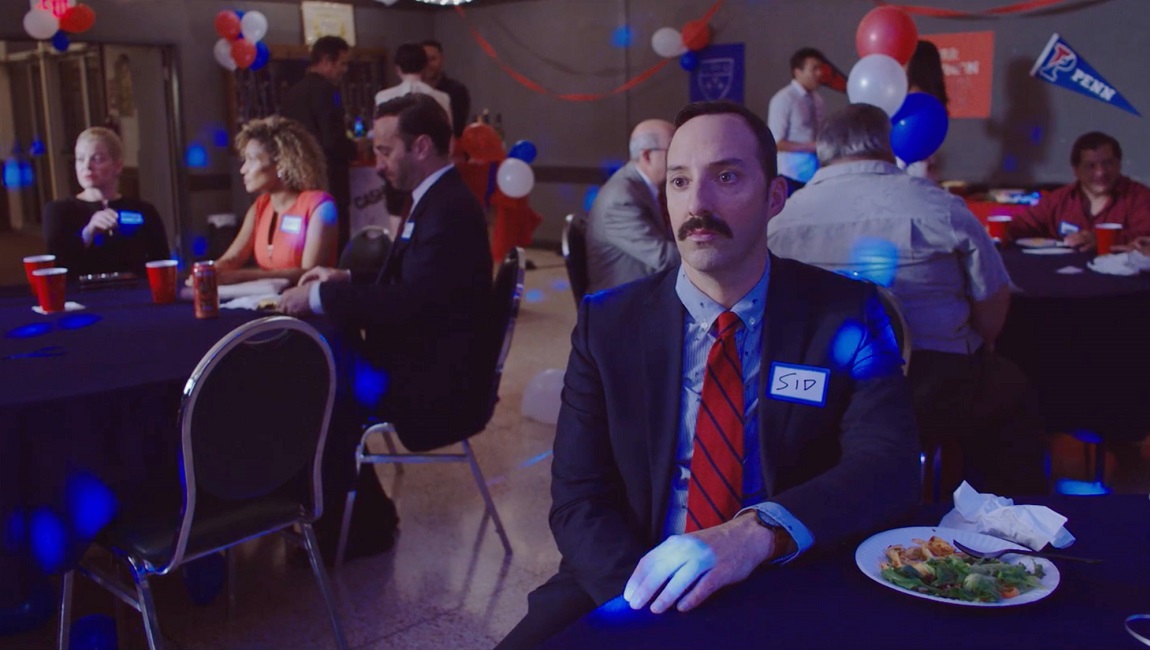Based on the true story of Army Medic Desmond Doss (Andrew Garfield here), a devout Seventh-Day Adventist and conscientious objector who rescued dozens of soldiers while refusing to kill an enemy or carry a weapon, Mel Gibson’s latest directorial effort is both a simple, deliberate Johnny-Goes-To-War melodrama and an incredibly brutal depiction of combat. The first hour of Hacksaw Ridge is given to straightforward throwback schmaltz: Doss comes of age under his strict father (Hugo Weaving), himself a WWI vet with a serious case of survivor’s guilt and PTSD, meets and falls in love with a pretty nurse (Teresa Palmer), and endures the scorn of his drill instructor and CO (Vince Vaughn and Sam Worthington, respectively) during basic training. Garfield does his best with material that offers him little room for nuance, screwing up his face into a dumb yokel’s grin even while receiving little but ridicule from his fellow trainees. You’d be forgiven if you found the whole thing more than a little hamfisted, but the incessant challenges to his character and religious beliefs set the stage for another of Gibson’s stories of witness/martyrs under intense physical and emotional trauma.
Gibson’s undeniable skill as a purveyor of intense cinematic violence comes to the forefront.
Once the war stuff kicks in at around the halfway point, though, Gibson’s undeniable skill as a purveyor of intense cinematic violence comes to the forefront. Doss and the troops try to take a heavily fortified Japanese position, and immediately we’re treated to bodies shredded by gunfire, men pirouetting through the air after mortar blasts, and soldiers cooked by screaming flamethrowers. It’s unsparing and thrilling in its attention to the cruel elegance of brutality. Gibson never shies away from some hellish wound or impact, and the compounding of one gnarly death after another results in something wearying rather than cartoonish (despite such bizarre awfulness as a man using a legless corpse as a human shield). In the final scenes, as Doss lowers wounded man after wounded man from a cliff, the clunky melodrama and sheer effort of his heroism becomes a welcome counterpoint to all that slaughter. At its best, Hacksaw Ridge reminds of John Woo’s deeply under-appreciated Windtalkers, another viciously violent story of men tormented by a belief in humanity in the face of nearly impossible duty.






